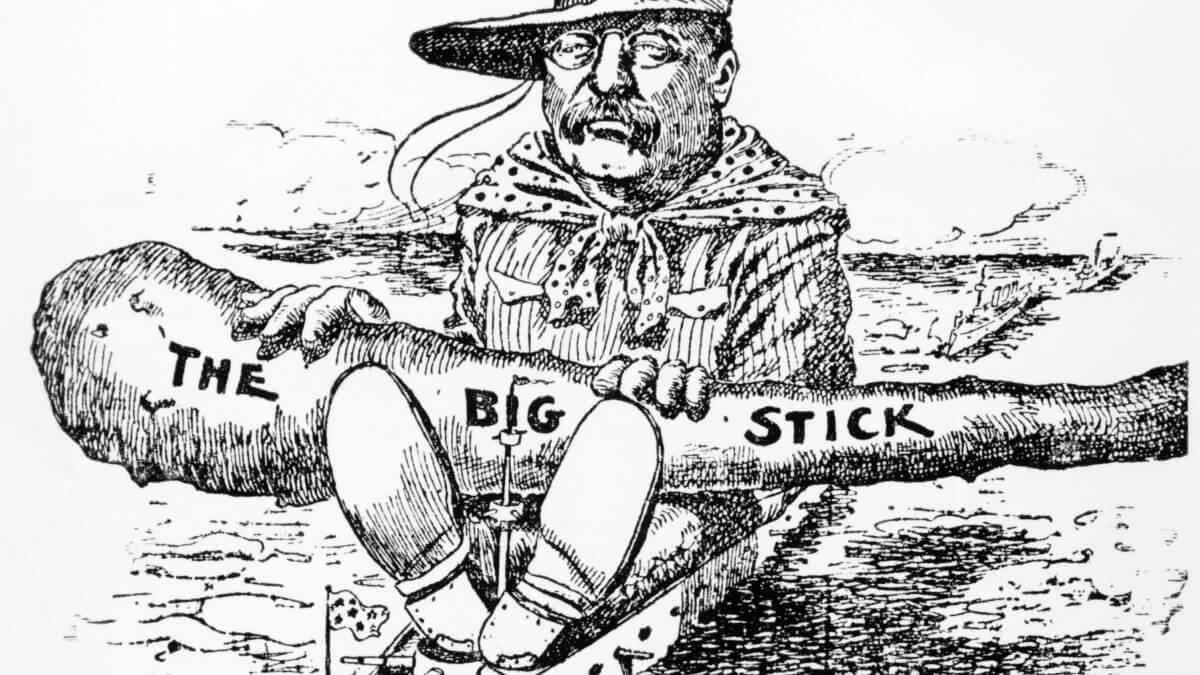When Theodore Roosevelt succeeded William McKinley as president in 1901, he was aware that America was in a different international position than it had been just a few years earlier. The United States had been a continental empire since its founding, but as a result of the Spanish-American War in 1898, it had ventured beyond its land borders. It claimed Guam, Puerto Rico and the Philippines as U.S. territories, made Cuba a U.S. protectorate and annexed Hawaii.
America was now an overseas empire, and Roosevelt thought it important for the U.S. to wield the kind of power in world affairs that European empires did. He believed U.S. interests were global interests, and that it was actually good for “civilized” nations—among which he counted the United States—to intervene in other countries’ affairs.
“He believed it was the burden of ‘civilized’ nations to uplift ‘uncivilized’ nations,” says Michael Patrick Cullinane, a history professor at the University of Roehampton in London and author of Theodore Roosevelt’s Ghost: The History and Memory of an American Icon.
In addition, Roosevelt was concerned that if the United States didn’t “take a bigger role in world affairs, it would actually decline from being a world power,” Cullinane says. To prevent this, the 26th president made sure the U.S. played a larger role in international diplomacy while at the same time reminding other countries that it was building a big navy—a foreign policy he described as “speak softly and carry a big stick.”
READ MORE: How Teddy Roosevelt’s Belief in a Racial Hierarchy Shaped His Policies
Courting Panama to Build a Canal
Theodore Roosevelt sits in a the carriage of a crane at the Panama Canal, while workers look on. Roosevelt, the 26th U.S. president, promoted the construction of the Panama Canal.
CORBIS/Corbis via Getty Images
Roosevelt was the driving force behind building the Panama Canal, a waterway that allows ships to travel between the Atlantic and…







